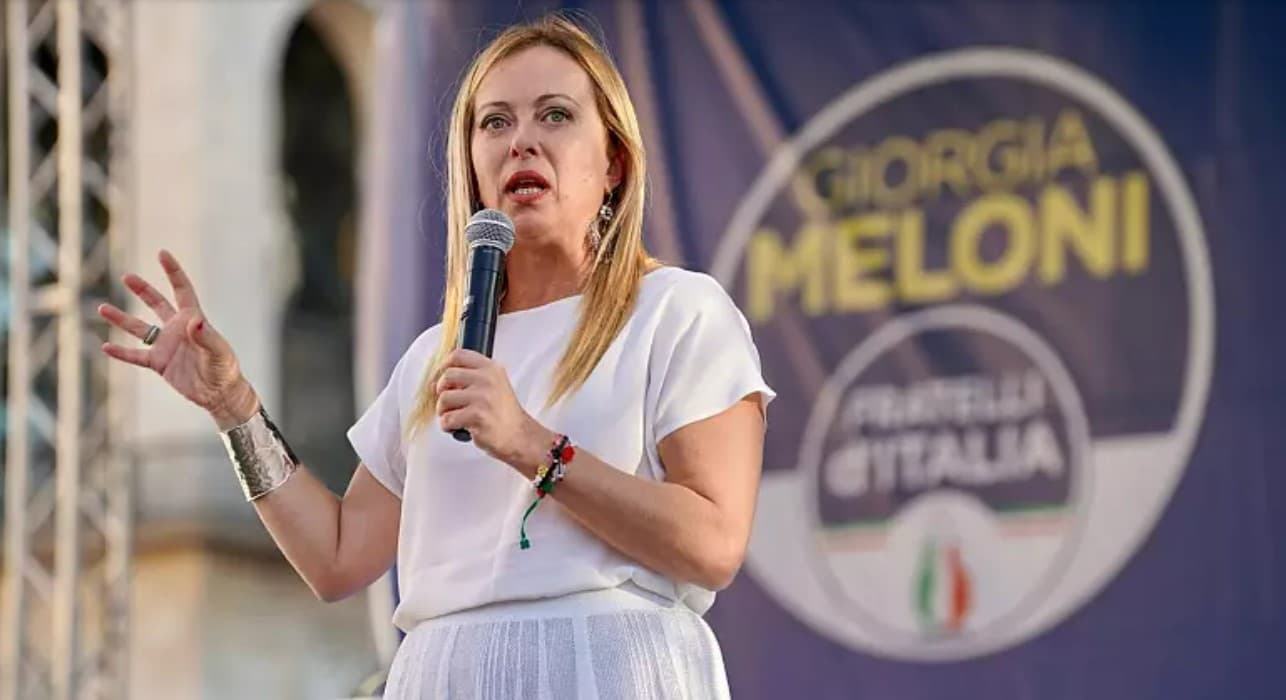ROME – Italians go to the polls today, in national elections expected to produce a big win for conservatives led by post-fascist politician Giorgia Meloni, who appears set to become the country’s first female Prime Minister, and including the right-wing, anti-immigrant Lega party under former Interior Minister Matteo Salvini.
The Italian results seem destined to bolster a recent European trend, including victories for right-wing populist forces in the Czech Republic and Sweden.
From the beginning, Pope Francis has made that brand of populism his personal bête noire. Last year in Greece, for example, the pope said, “We cannot avoid noting with concern how today, and not only in Europe, we are witnessing a retreat from democracy,” condemning “populism’s easy answers.”
Theoretically, one would thus expect Pope Francis to be upset with this trend, especially since it’s now poised to unfold in his own backyard in Italy. Yet politics is often where conventional wisdom goes to die, and what’s happening today is a classic case in point.
There’s one topic on which Francis and his populist foes may be each other’s uneasy allies, and it’s a whopper: Russia.
Recently, outgoing Italian Prime Minister Mario Draghi, a Jesuit-educated practicing Catholic, was in New York to receive the “Statesman of the Year” award from the Appeal of Conscience Foundation. He was lauded, among others, by Henry Kissinger for his steadfast stance in favor of Ukraine and against Russia.
In his address, Draghi said, “The question of how we deal with autocracies will define our ability to shape our common future.”
I say “outgoing” because Draghi’s government recently fell, setting the stage for today’s elections. Under Italian law polls can’t be published less than two weeks from the vote, but every survey prior to that point showed a virtually insurmountable lead for the conservatives.
For sure, Francis and these right-wing forces part company on multiple fronts, including immigration and support for the European Union. Yet arguably, those issues aren’t the most pressing facing Europe at the moment. The question is whether to follow the Draghi line of full support for Ukraine and opposition to Russia, or whether to reach out to Russian President Vladimir Putin in hopes of reaching some sort of face-saving resolution.
On that front, Francis and the populists, who generally see Putin as a bulwark against social liberalism, more or less agree in practice if not in principle.
During a recent in-flight news conference, Francis said that although he supports Ukraine’s right to defend itself, he also believes Ukraine and the West should be open to dialogue with Russia, even if Ukraine has to “hold its nose” to do so.
“It (dialogue) is always a step forward, with an outstretched hand, always. Because otherwise we close the only reasonable door to peace,” he said.
In a different key, that’s more or less the position of Europe’s populist forces, from Viktor Orbán in Hungary to Salvini. Even though he recently said he’s soured on Putin since the war, Salvini remains skeptical about sanctions because he believes they’ve negatively impacted the wallets of the average Italian and wants an exit strategy.
The irony of a de facto alliance with Francis on Russia is thick, in that Salvini’s Catholic base in Italy is composed of the most anti-Francis folks imaginable. In public rallies, Salvini often appears with a rosary of Our Lady of Medjugorje, and he’s widely perceived as an admirer of Italian Archbishop Carlo Maria Viganò, probably the most vicious anti-Francis critic of them all.
Let’s just stand back for a moment and absorb the dynamics.
Who are Putin’s most determined enemies? We’d probably have to list U.S. President Joe Biden, President Emmanuel Macron of France, German Chancellor Olaf Scholz and EU President Ursula von der Leyen, all of whom are fundamentally regarded as social liberals. For precisely that reason, all are strongly anti-Putin, in part because they see him as ever more tied to anti-progressive values and policies.
In terms of conventional politics, all those figures would also be considered closer to Pope Francis than their realistic alternatives. In the U.S., for instance, Francis has been criticized by Catholic conservatives for not supporting bishops who want to deny communion to Biden and other pro-choice Democrats.
Yet Francis seems to be lining up with his enemies rather than his allies when it comes to Russia.
Granted, Francis’s reasons for not demonizing Putin are qualitatively different. Recently, Polish Cardinal Konrad Krajewski, during a humanitarian mission to Ukraine, was called upon to explain.
“The Holy Father thinks in terms of the Gospel,” Krajewski said. “The pope insists that the drama of the war is on both sides.”
Krajewski told Crux it was difficult to say so in Ukraine, but “both sides suffer in the war, also the Russian side, where soldiers and their families were manipulated into this war, were given weapons … the war destroys both sides, that is the message of the Holy Father.”
One classic measure of political integrity is the capacity to stand up even to your friends when you think they’re wrong, and to be willing to pay a price for doing so.
By that test, Pope Francis right now seems to pass muster, among other things because he’s likely to inherit a new government in Italy to which he’s never objected in any public way, but that’s hardly the stuff of his dreams. However, that government may be more inclined than the one it’s likely to replace to support an end to the Ukraine conflict, even at the expense of giving Putin some of what he wants.
To quote the Rolling Stones: “You can’t always get what you want, but if you try sometime, you’ll find, you get what you need.”












